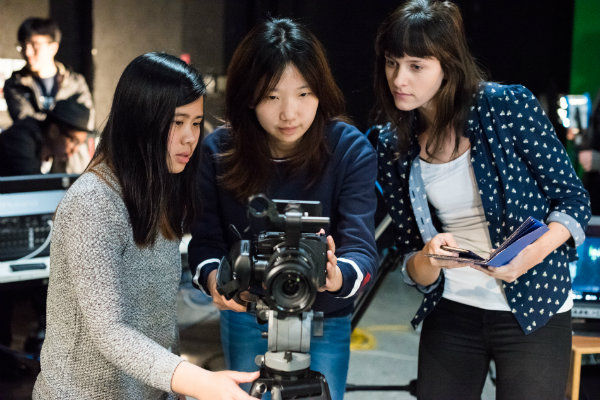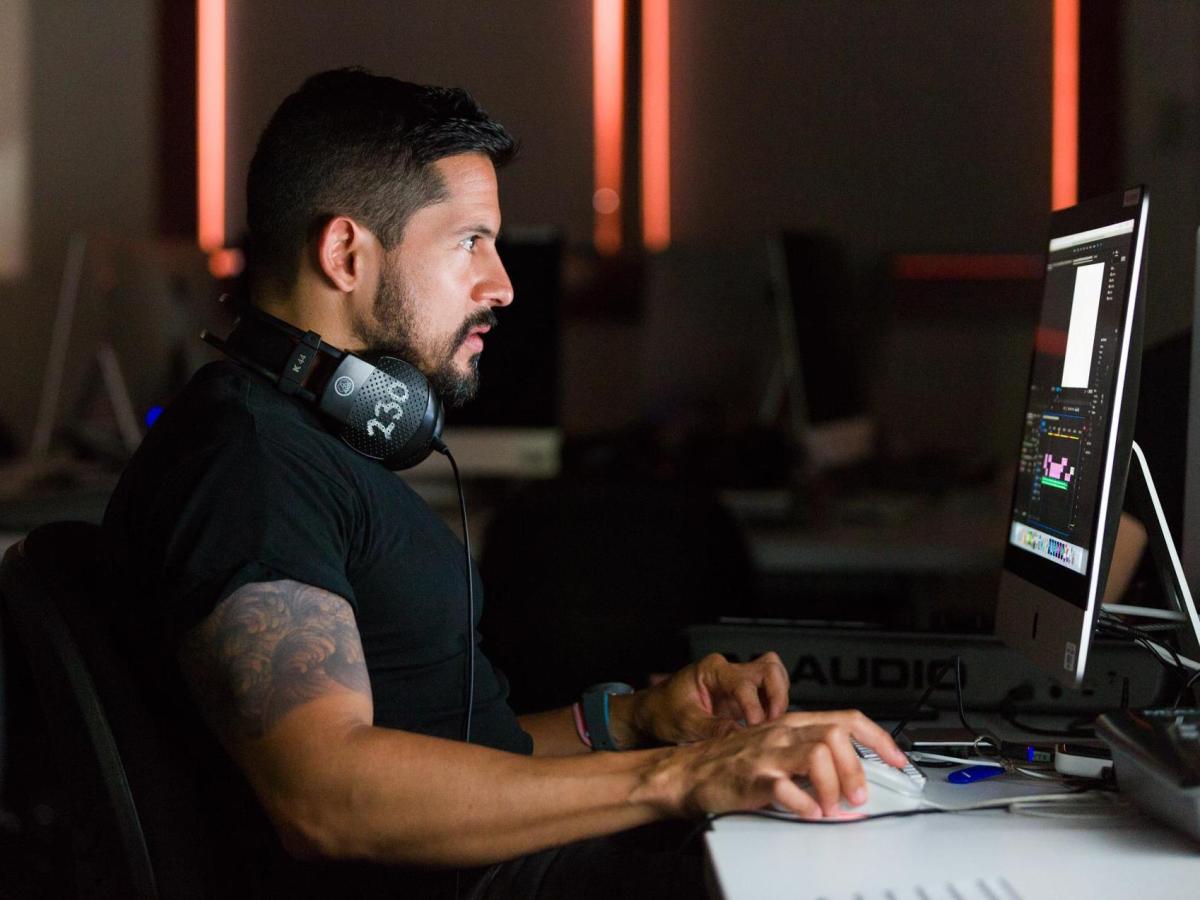Andy Roberts Photographer
University of Technology Sydney (UTS) is responding to the changing scope of the creative industries with the introduction of two new postgraduate courses designed to prepare students for the opportunities, and challenges, of the dynamic new media environment.
The new Media Practice and Industry program focuses on developing customisable skills that facilitate ethical and sustainable media practice and equip students to succeed within a shifting economy. The courses will be available for the first time in 2019 as a Graduate Certificate or Masters Degree qualification.
‘We really wanted to respond actively and creatively to the issues out there faced by the industry and give graduates and industry professionals the conceptual and practical armature to do this,’ said UTS Media Arts & Production academic Dr Alex Munt.
The issues facing creative practitioners include the seismic shifts in social and political attitudes , and the rate of technological change in the creative and digital arenas.
‘Whether it’s a question of ethics, cultural or gender diversity, or rapidly changing technology and immersive media forms, these are all complex and convoluted issues,’ said Munt, who was instrumental in developing the new program alongside Professor Deb Verhoeven, Associate Dean of Engagement & Innovation and Professor Mark Evans, Head of the School of Communication.
‘We want to attract a bold and ambitious cohort of Media Practice and Industry students who will embrace the contemporary set of problems out there. It’s our aim to future-proof this new cohort and inspire them to be responsive, adaptive, and innovative.
‘We want to instil in them the skills and desire to be the change and to make change through paths to social impact or finding new, immersive and engaging ways to tell stories in a hybridised media landscape,’ Munt explained.
The changes in the creative industries are reflected in the pedagogy of the new courses which seeks to replicate the new reality and anticipate future realities.
Students will be able to work with all the latest immersive forms of media, including 360, VR and AR. They will also benefit from the School of Communication’s strong track record in screen production, with opportunities to work in both development and distribution, learning how to attract and keep new audiences in an increasingly congested screen-scape. To achieve this, the shape of the learning experience will be iterative, problem-based and prototype-based as students work with new approaches to generate content and strategies to get it seen.
‘The learning environment has been designed with the future in mind. Our new suite of subjects will address how to critique and rethink industry practices; to write, develop and prototype creative projects; and to use design thinking and studio based learning towards this,’ said Munt.

Kwa Nguyen Photographer
The Media Practice and Industry program was extensively benchmarked against the best courses offered nationally and internationally. Its development was also informed by a panel of leading industry advisors, including Nerida Moore, David Court, Lynette Walworth, and Courtney Gibson. UTS has strong linkages with industry leaders who contribute to the courses with guest lectures and master classes. Many of these leaders and practitioners are themselves UTS alumni.
Students also benefit from the considerable depth of industry experience across the Media Arts faculty. Professor Rachel Landers, previously Head of Documentary at AFTRS, was recruited to UTS to lead Media Arts into this ‘brave new world’. Alex Munt’s background is in micro-budget filmmaking and alternative screenwriting; lecturers Gillian Leahy and Andrew Taylor have professional experience in the documentary and hybrid storytelling space; and Chris Caines, Megan Heyward, Greg Ferris, and Bettina Frankham all lead creative practice research in spatialised media, installation and multiplatform work.
‘We are all well represented at international screen and arts festivals, in contemporary art spaces, and via screen distribution portals,’ said Munt.
‘We really think our new Masters is distinctive and will make a real mark in this space. UTS is actively challenging and responding to the critical issues for industry, and the creative practices which inform it.’
The new Media Practice and Industry program is designed for graduates and industry professionals who are ready to ‘shift gears’ in their career. The Graduate Certificate and Masters Degree are both offered in full-time and part-time study modes to suit the needs of those already working in the industry. Students can choose their subjects from three study blocks, designated as Industry, Innovation, and Production, to meet their own personal and professional interests.
‘We are transforming our post-graduate space as an incubator to deliver new practices, impactful stories and creative media experiences for a convergent world,’ Munt said.
Applications are now open for the new Graduate Certificate and Masters in Media Practice and Industry within the School of Communication at UTS. For more information, go to www.uts.edu.au.





